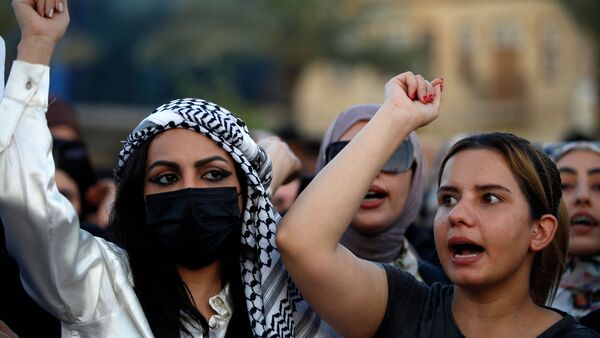News
Agony of girl child as Parliament proposes Bill to allow 9years old girls marry

News
Lagos High Court sentences Indian citizens to 10years jail over procurement fraud

By Kayode Sanni-Arewa
An Indian national Chandra Singh has been sentenced to ten years jail over N816million procurement fraud.
Justice I.O. Ijelu delivered the judgment convicting Singh on charges of bribery and retention of stolen property amounting to N816,361,386.75.
The Economic and Financial Crimes Commission (EFCC) had arraigned Singh on 24 November 2022 on a 19-count charge.
The prosecution accused him of soliciting undue advantage for his company, CVN Engineering Limited, while employed at African Natural Resources and Mines Limited.
One of the charges stated, “That Chandra Prankash Singh, on or before 1st of January, 2021, within the jurisdiction of this Honourable Court, whilst in the employment of African Natural Resources and Mines Limited, solicited indirectly to confer undue advantage for your company, CVN Engineering Limited, in order that you influence your employee to award the supply of items costing N365,757,457.00 to CVN Engineering Limited.”
Another charge detailed a similar offence involving Neo Paints Nigeria Limited, stating, “That Chandra Prankash Singh, on or before 1st of January, 2021, within the jurisdiction of this Honourable Court, whilst in the employment of African Natural Resources and Mines Limited, solicited indirectly to confer undue advantage for your company, Neo Paints Nigeria Limited, in order that you influence your employee to award the supply of items costing N243,141,638.75 to Neo Paints Nigeria Limited.”
Singh was also accused of dishonestly retaining $4,150 belonging to African Natural Resources and Mines Limited.
He pleaded “not guilty” to all charges, leading to a full trial.
During the proceedings, prosecution counsel Bilikisu Buhari called nine witnesses and presented documentary evidence to establish Singh’s guilt.
After reviewing the evidence, Justice Ijelu found him guilty on counts 14, 15, 16, 17, and 18.
The judge sentenced Singh to 10 years imprisonment without an option of a fine and ordered him to pay restitution of N345 million to his victim.
The case concluded with Singh’s conviction for his involvement in the fraudulent scheme, which saw him exploit his position for personal gain.
News
Just in: FG Fails To Pay NYSC Members New N77k Allowance Despite Promises

By Kayode Sanni-Arewa
The Federal Government has failed to pay N77,000.00 earlier promised to take effect at the end of February, 2025.
Corps members confirmed receiving their February allowance on Friday night, only to find out that it remained unchanged at N33,000 — less than half of the new amount that was supposedly approved.
The development contradicts the assurances given in January by the NYSC Director-General, Brigadier General Yushau Ahmed, who had publicly stated that the allowance increment was a done deal, awaiting only the passage of the 2025 budget.
The Federal Government has already approved the increment of your allowance. It is no longer news; we have the approval in our hands. What we are waiting for is just the passage of the budget,” Ahmed had told corps members in Katsina State, vowing that by February, they would start receiving N77,000.
However, February has come and gone, and the promise remains unfulfilled.
The Tinubu government has not provided any official explanation for the failure to implement the increase, leaving corps members stranded and frustrated in the face of a worsening economic crisis.
With Nigeria’s inflation rate soaring and the cost of living becoming unbearable, the N33,000 allowance is no longer enough for corps members to meet even their basic needs.
Many struggle to afford food, transportation, and accommodation, as prices of essential commodities skyrocket due to bad economic policies and naira depreciation under Tinubu’s administration.
A corps member serving in Oyo expressed his disappointment, saying, ”How do they expect us to survive on ₦33,000 when everything is expensive? They told us we would get ₦77,000 this month, and now they have failed again. This government keeps making promises but never delivers.”
Another corps member in Kano lamented that the delay in the allowance increment is yet another example of the government’s insensitivity to the struggles of young Nigerians.
“We are serving our country, yet we cannot even afford decent meals. The government knows that ₦33,000 is not enough, but they don’t care. They keep making empty promises while we suffer,” she said.
The failure to implement the promised allowance increase has further eroded trust in the Tinubu administration, which has been widely criticised for its economic policies that have. worsened inflation, unemployment, and poverty across the country.
SAHARA REPORTERS
News
SAD! 60 passengers d3e in Kwara auto crash

By Kayode Sanni-Arewa
No fewer than 60 passengers lost their lives in an auto crash at Oko-Olowo, along Ilorin-Jebba expressway, Ilorin, Kwara State on Friday.
Sources said the victims were traveling from northern part of the country.
According to an eyewitness, the auto crash occurred when a trailer carrying fertilizer and petrol laden truck collided while overtaking, resulting in inferno
Another source revealed that burnt skulls and other human parts like limbs were seen being burnt inside the affected vehicles, while others littered the screen of the accident.
An eyewitnesses, who said that victims were burnt beyond recognition, said it all happened at about 8:30 am on Friday, adding that the vehicles burnt for over two hours.
The accident caused serious traffic on the ever busy road, lasting through the period the state fire service staff evacuate the corpses at about 10:30 am.
An eyewitness, Sheu Arobadi, said that the trailer loaded with fertilizer tried to overtake petrol laden truck and the two vehicles collided on the sides, thus, resulting in inferno.
The eyewitness, who said that occupants on top of the trailer scampered for safety immediately the incident happened, added that so were the occupants of the truck carrying the fertilizer, who he said jumped from top of the vehicle to escape being caught up in the ensued flame.
“Many of the people suffered broken legs and arms as they were jumping down from the vehicles. A father had to throw one of his children out of the burning vehicles before he could also jump down. Those who sustained injuries and fractures had been rushed to nearby hospitals for medical attention,” he said.
Arobadi, who lives in the area, said that road accident of different dimensions occurred at least once every week along the expressway, with heavy losses in lives and property.
Residents of the area called on government to find lasting solution to the frequent occurrence of crashes along the road, while suggesting construction of overhead bridge to check the development 60 people burnt to death in Kwara auto crash
NewsMirror March 1, 2025
No fewer than 60 people were burnt to death in an auto crash at Oko-Olowo, along Ilorin-Jebba expressway, Ilorin, Kwara State on Friday.
Sources said the victims were traveling from northern part of the country.

According to an eyewitness, the auto crash occurred when a trailer carrying fertilizer and petrol laden truck collided while overtaking, resulting in inferno
Another source informed that burnt skulls and other human parts like limbs were seen being burnt inside the affected vehicles, while others littered the screen of the accident.
An eyewitnesses, who said that victims were burnt beyond recognition, said it all happened at about 8:30 am on Friday, adding that the vehicles burnt for over two hours.
The accident caused serious traffic on the ever busy road, lasting through the period the state fire service staff evacuate the corpses at about 10:30 am.
An eyewitness, Sheu Arobadi, said that the trailer loaded with fertilizer tried to overtake petrol laden truck and the two vehicles collided on the sides, thus, resulting in inferno.
The eyewitness, who said that occupants on top of the trailer scampered for safety immediately the incident happened, added that so were the occupants of the truck carrying the fertilizer, who he said jumped from top of the vehicle to escape being caught up in the ensued flame.
“Many of the people suffered broken legs and arms as they were jumping down from the vehicles. A father had to throw one of his children out of the burning vehicles before he could also jump down. Those who sustained injuries and fractures had been rushed to nearby hospitals for medical attention,” he said.
Arobadi, who lives in the area, said that road accident of different dimensions occurred at least once every week along the expressway, with heavy losses in lives and property.
Residents of the area called on government to find lasting solution to the frequent occurrence of crashes along the road, while suggesting construction of overhead bridge to check the development
-

 News24 hours ago
News24 hours agoBREAKING! Wike breaks silence on S/Court verdict, says it has ended era of lawlessness
-

 News23 hours ago
News23 hours agoObasanjo, 7 ex-presidents work towards debt relief for African countries
-

 News23 hours ago
News23 hours agoUpdated : Supreme Court fires all Rivers LG Chairmen
-

 News23 hours ago
News23 hours agoSARS protest: Man reportedly denied asylum in Canada over past role
-

 News22 hours ago
News22 hours agoJust in: Saudi Arabia sights Ramadan moon fasting begins tomorrow
-

 News23 hours ago
News23 hours agoHow driver handed abducted Oyo NYSC member to k!dnappers
-

 News24 hours ago
News24 hours agoBREAKING: Finally , 2 weeks after, Tinubu signs N54.9trn 2025 budget
-

 News21 hours ago
News21 hours agoTroops Nab Notorious Bandit, Hassan in Zamfara







